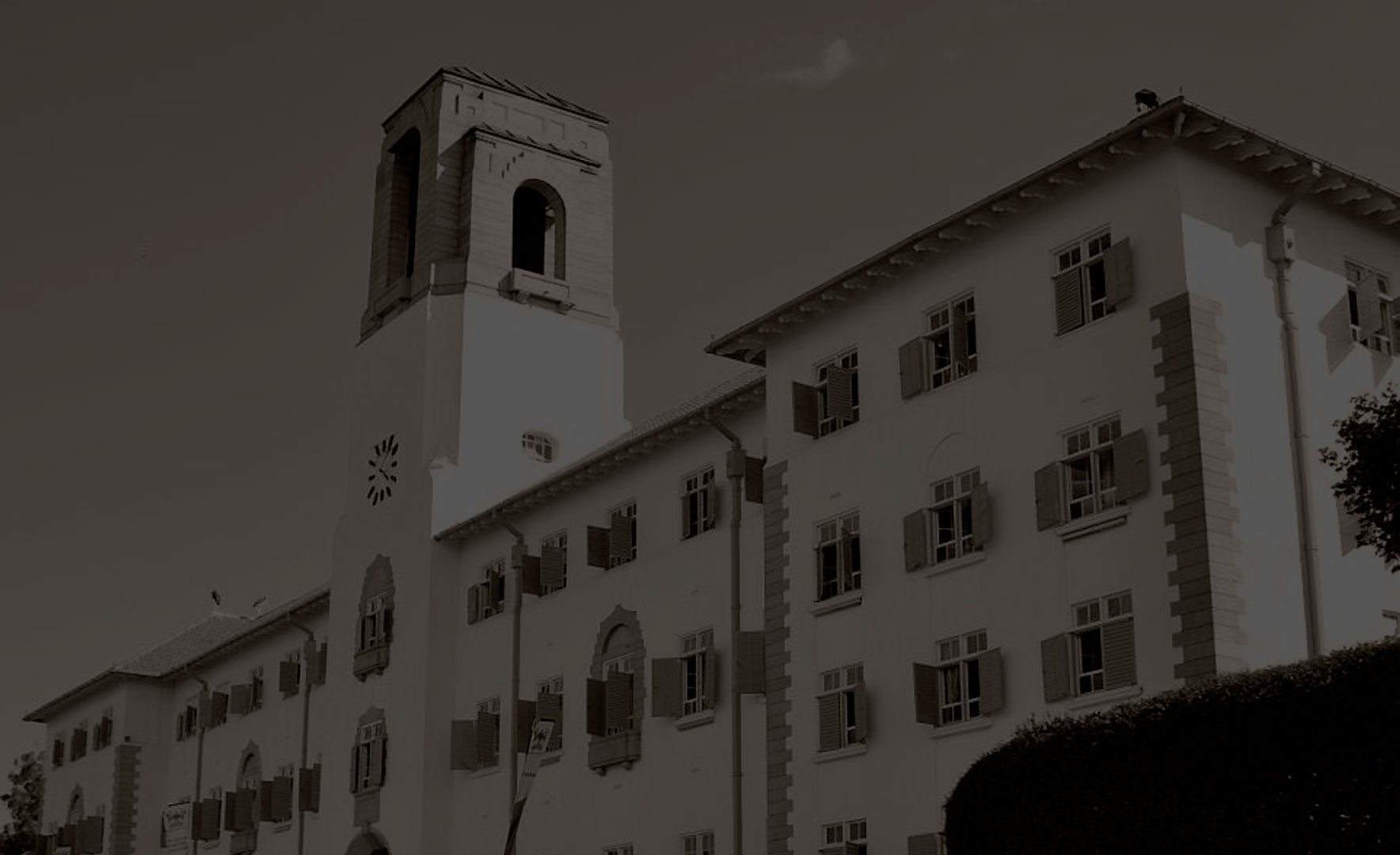An excerpt from former two-time Vice Chancellor (1973-1975, 1979-1986), Professor Asavia Wandira’s speech titled “MAKERERE AND THE PROBLEM OF THE GOLDEN APEX”, as delivered at the launch of celebrations to mark 90 years of Makerere’s existence, 4th August 2012, Freedom Square, Makerere University.
Makerere University was established by the Uganda Government on the 1st August 1922. It immediately shed the trade courses that had been offered by its predecessor Technical College. New Courses were established in Medicine, Agriculture, Veterinary Science, Engineering, Surveying and Teacher Training. The demand for Makerere admissions increased from year to year. Soon, Makerere College became one of the highly admired Colleges in British Colonial Africa. Makerere joined the company of similar colleges at Legon in the then Gold Cost, Ibadan in Nigeria, Gordon College in Khartoum, Sudan and the College in Rhodesia. These Colleges awarded Diplomas and Certificates in the Courses they offered.
The five Colleges faced two major conceptual problems as to their future and higher development,
- Where you have an underdeveloped Secondary School System, what should take first genesis: the development of the College into University of the development of the Secondary School system?
- Given the standards of internationally recognized Universities, should new Universities set their own standards having regards to their nations’ development and allow those standards to fluctuate as development progresses? Or, should they be fixed to the presumed International standards of the Universities?
In the case of East Africa, a Commission appointed by the Colonial Office and chaired by the Earl de la Warr, reported in 1937 that Makerere should continue to offer Diploma Courses and develop gradually into a University College of East Africa in about 1945; thus, permitting Makerere to set its own standards. Indeed Dr. W. D. Lamont was appointed Principal to guide Makerere to full University College status. To his frustration, debate continued as to the right level of development expected of Makerere. Dr. Lamont resigned in protest.
Earlier, the Asquith Commission had in 1944 recommended that the Colonial Colleges should be brought into Special Relationships with the University of London in whose Golden Standards the colleges’ standards would be anchored. In 1949 negotiations for the Special Relationship between Makerere College and the University of London were completed. Makerere became the University College of East Africa and awarded the first 13 University of London Degrees in 1953. Thus, the Golden Standards of Makerere were born.
The first challenge to Makerere’s Special Relationship with the University of London came with the Independence of the East African countries which had hitherto shared Makerere’s facilities. In particular; Tanzania rejected the Special Relationship with the University of London as a colonial relic. The counter argument in education and the University circles was that three small University Colleges separated by vast distances could not guarantee the Golden Standards already achieved. These challenges led to the establishment of the University of East Africa, bringing together the University Colleges of Dar-es-salaam, Nairobi and Makerere. The University of East Africa became the new guarantor of standards and the fixed Apex of East African Systems of Education.
Sir Bernard de Bunsen, who had successfully steered Makerere through the period of Special Relationship with the University of London, was appointed the first Vice Chancellor of the University of East Africa. A seasoned Uganda, Mr. Yusufu Kironde Lule who had lectured at the Faculty of Education, served as Minister of Social Development in the Pre-Independence times and was then serving as the Chairperson of both the Public Service Commission and Makerere University Council, was persuaded to accept the post of Principal, Makerere University College. A number of East Africans who had been serving in Makerere, sought appointments in the new University Colleges of Dar-es-Salaam and Nairobi. For instance, Dr. David Wasawo and Dr. Simeon Ominde went to Nairobi while Dr. Wilbert Chagula left for Dar-es-salaam. The departure of these East Africans left Makerere with even fewer African academicians. These included Dr. Magambo of the Medical School, Gregory Maloba of Fine Art and Senteza Kajubi of Education.
Generally, the University of East Africa worked well in building academic standards and innovations. The vigour and diverse experience of the staff in Nairobi and Dar-es-Salaam were made available to Makerere. In turn, the long experience of Makerere was placed at the disposal of Dar-es-salaam and Nairobi. These exchanges enriched the meetings of Senate and subject conferences. In contrast, the University of East African had difficult and controversial debates in its Council and Planning Committee. There were difficulties in reconciling the development interests of the three countries and three University Colleges within the limited resources available. The consequence of these difficulties was for each country to press for the development of its University College to full University status. On the 1st July 1970, the University of East African gave way to the three independent Universities of Makerere, Nairobi and Dar-es-salaam. Each became the Golden Apex of its country’s Education System.
Paradoxically, the departure of the University of East Africa led to the departure of Principal Y.K. Lule. He had been at the centre of controversy over the role of the University, the pace of Africanisation in Makerere and the freedom and independence of the University in academic matters. On the last day of the University of East African, the Visitor to Makerere University College announced that according to the new Makerere University Act, the post of Principal had disappeared. Y. K. Lule would be assigned other duties in the Nation. The Vice Chancellor of Makerere University was to be Mr. Frank Kalimuzo, Permanent Secretary, Office of the President, Head of the Civil Service and Secretary to the Cabinet. The Government hoped for improved relations with the new Makerere University.
The Apex Under Siege
The hopes raised by the appointment of Frank Kalimuzo to the Vice Chancellorship, were unfortunately shattered within the twinkle of an eye. In 1972, Vice Chancellor Frank Kalimuzo paid the ultimate price of having held a high profile post under a Government that had been overthrown and refusing to divulge publically the secrets of that Government.
I was appointed Acting Vice Chancellor with the responsibility of keeping the University going and ensuring the orderly celebrations of the Golden Jubilee of the University only a few days away. On successful completion of the Celebrations, I was confirmed Vice Chancellor.
Serious difficulties faced Makerere University. The Economic war was raging. The combined impact of Economic war and the Murder of Vice Chancellor Kalimuzo, led to the mass departure of foreign and senior Uganda academic staff. The Apex had been shaken to its foundation.
As if to assist the University in its difficulties, the Government made arrangements for staff recruitment in Egypt led by the Vice Chancellor. Unfortunately, not a single Egyptian academic offered services to Makerere. The next goodwill drive was to the Royal Kingdom of Saudi Arabia. The group consisted of 30 students and staff led by the Vice Chancellor. The success of this visit is to be seen in the Mosque at the main entrance of this campus. Makerere was left to survive on its own wits!
Unexpectedly, there came demands for the award of an Honorary Doctorate to the Head of State. No one in Senate was prepared to discuss this demand. The Honorary Degrees Committee was disbanded to prevent any further discussion of this issue. Shortly afterwards, a Diplomat from a friendly country, holding third class degree from an unknown University and unable to provide any evidence of further academic growth, applied for admission to a Masters Course in Political Science. The Post Graduate Committee of the Faculty of Social Sciences, the Board of the Faculty and the Senate roundly rejected this application. In yet another development, a Clerk in the University Estates Department who was known to have connections with State intelligence was dismissed for indiscipline. The University had dug and entered its trenches.
In reaction to these developments, University administration was reshuffled in 1975, sending into exile the Vice Chancellor, the University Secretary (Michael Sozi), The Dean of Social Sciences (Prof. Yoweri Kyesimira) and the Chairman of the Post Graduate Committee of Social Sciences (Dr. Justine Akiki-Mujaju).
The burden of upholding the glory of the Golden Apex fell upon Prof. Joseph Lutwama who became the new Vice Chancellor. Sensing tactical advantage in the changes that had taken place in the University Administration; the demand for an Honorary Doctorate for the Head of State was renewed and successfully pressed. The International academic community began to accuse Makerere of appointing Economic War Professors.
Within two (2) years of Lutwama’s appointment, another reshuffle of the Vice Chancellorship brought Senteza Kajubi to the leadership of the University. However, the war with Tanzania soon began resulting in the capture of power by the UNLF. Prof. Y. K. Lule was then appointed President of Uganda and became the new Chancellor of Makerere University. Hopes were high that the dance of the Vice Chancellor’s music chars had ended. Unfortunately, the Presidency of Prof. Y. K. Lule ended after only 68 days. Angry students of Makerere University poured onto the streets of Kampala and surrounded Nile Mansions, chanting: “Ffe Twagala Lule Oba Tufa Tufe”. The Vice Chancellorship of Senteza Kajubi ended. I was re-appointed Vice Chancellor.
In the subsequent 7 years (1979 – 1986), a truce appeared to have been established between Government and University. As Governments changed hands many times in Kampala, the University was left to toil at the rebuilding of its Golden Apex and Image. Among the urgent tasks tacked were the following;
- Adhering to the University Regulations governing Admissions, Awards and Staff Appointments.
- Reviving the Staff Development Programme. In this regard, Australia was the first to offer 20 Fellowships for Teaching Assistants to take Masters and Doctoral Degrees in that country.
- Increasing up to date learning materials in the University. Canadian and Australian Universities each offered 20 tons of books for the Library immediately.
- Increased visibility of the university at International Conferences of the Association of Commonwealth Universities, Association of African Universities, and Professional and Subject meetings. The visibility of the University at International meetings, helped to rebuild its image.
The Glory of Makerere’s Golden Apex was slowly but surely being rebuilt for the future.
The Liberation of Uganda by the NRA/NRM finally lifted the siege of the Golden Apex of Makerere.

